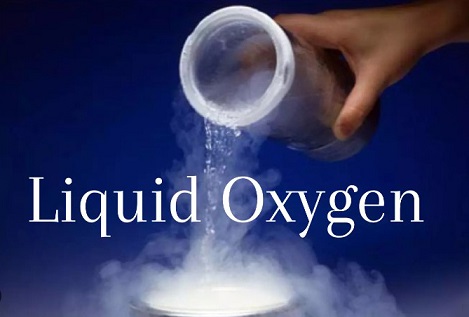COVID-19 News: Liquid Hyperoxygen Found To Be A New And Effective COVID-19 Disinfectant
Nikhil Prasad Fact checked by:Thailand Medical News Team Jan 20, 2024 2 years, 4 weeks, 2 days, 22 hours, 11 minutes ago
COVID-19 News: The ongoing battle against the COVID-19 pandemic has witnessed a continuous evolution of preventive strategies, ranging from specific antiviral medications to non-specific measures such as personal protective equipment and environmental sanitation. The emergence of new SARS-CoV-2 variants has necessitated the exploration of innovative chemoprophylaxis protocols to supplement existing immune-prophylaxis measures. In this context, a recent study covered in this
COVID-19 News report, conducted by the University of Genoa in Italy, in collaboration with IRCCS Ospedale Policlinico San Martino-Italy, Istituto Internazionale Barco SpA-Italy, and Biobasic Europe Laboratory, Milano-Italy, has shed light on the potential of Liquid Hyperoxygen (IOL) as an effective COVID-19 disinfectant.
 Liquid Hyperoxygen Found To Be An Effective COVID-19 Disinfectant
Understanding the Sensitivity of SARS-CoV-2
Liquid Hyperoxygen Found To Be An Effective COVID-19 Disinfectant
Understanding the Sensitivity of SARS-CoV-2
The SARS-CoV-2 virus, responsible for the COVID-19 pandemic, exhibits sensitivity to oxidation due to the positive electrical charge of its spike protein used as a ligand for target cells. The study aimed to evaluate the safety and efficacy of IOL, a new oxidant preparation, in neutralizing the SARS-CoV-2 virus.
Efficacy of Liquid Hyperoxygen (IOL)
The research involved incubating IOL with throat swabs containing the human wild-type virus and subsequently assessing the ability of IOL to neutralize SARS-CoV-2 infection in cells expressing the ACE2 receptor. Results indicated that IOL, even at significant dilutions, could completely inhibit SARS-CoV-2 infection in incubation times as short as 5 minutes. This inhibitory effect was attributed to the oxidizing capacity of IOL, which did not damage eukaryotic cells in both in vitro and in vivo skin models.
Challenges in Environmental Stability of SARS-CoV-2
The stability of the SARS-CoV-2 virus in different environmental conditions, surfaces, and temperature ranges has posed significant challenges in controlling its spread. Regular cleaning and disinfection, especially on frequently touched surfaces, have been crucial in curbing transmission. Household surfaces have been identified as key transmission sites, with contamination persisting even after symptoms recede.
The Role of Disinfectants
Various
COVID-19 Disinfectants have been employed to combat the spread of SARS-CoV-2, including alcohols, quaternary ammonium compounds (QACs), sodium hypochlorite, and hydrogen peroxide. While effective, these agents can have adverse effects on surfaces and the environment, necessitating thorough research for appropriate selection and application.
Liquid Hyperoxygen (IOL) as a Safe and Powerful Disinfectant
The study's findings provide compelling evidence of IOL's potential as a safe and powerful tool for preventing COVID-19 outbreaks. IOL, described as a
hydrophilic liquid mixture saturated with highly reactive oxygen and nitrogen species, demonstrated remarkable efficacy in neutralizing SARS-CoV-2, even at extreme dilutions. The oxidizing capacity of IOL proved effective in inhibiting viral infection without causing harm to eukaryotic cells.
Applications of IOL in Real-world Settings
The research discussed the potential applications of IOL in various settings, including households, hospitals, clinics, and public spaces. The study's focus on the environmental stability of SARS-CoV-2 and the effectiveness of IOL in reducing contamination on surfaces highlights its relevance in real-world scenarios.
Quantification of IOL's Oxidizing Capacity and Safety Assessment
The study also quantified the oxidizing capacity of IOL in human blood serum, demonstrating its powerful oxidative action even in complex biological matrices. Safety assessments, including in vitro and in vivo tests, affirmed the non-cytotoxic nature of IOL and its safety compared to other chemical disinfectants.
Innovative Environmental Sensors for IOL Monitoring
To ensure the successful neutralization of SARS-CoV-2 in confined environments, the study explored the development of environmental sensors based on chromogenic substrates. Both liquid and solid sensors were evaluated, with the solid sensor offering practical advantages in terms of ease of application and maximized interaction surface.
Conclusion
The study concludes by affirming that IOL represents a groundbreaking approach to combat the COVID-19 pandemic. With its demonstrated efficacy, safety, and potential applications in diverse settings, IOL emerges as a promising tool in the ongoing efforts to prevent and control the spread of SARS-CoV-2. The development of environmental sensors adds an innovative dimension to IOL's use, ensuring effective disinfection and monitoring in real-world scenarios. As the world continues to grapple with the challenges of the pandemic, the research on Liquid Hyperoxygen (IOL) stands as a beacon of hope for a safer and more effective approach to disinfection.
The study findings were published on a preprint server and are currently being peer reviewed.
https://www.preprints.org/manuscript/202401.1457/v1
For the latest
COVID-19 News, keep on logging to Thailand Medical News.
